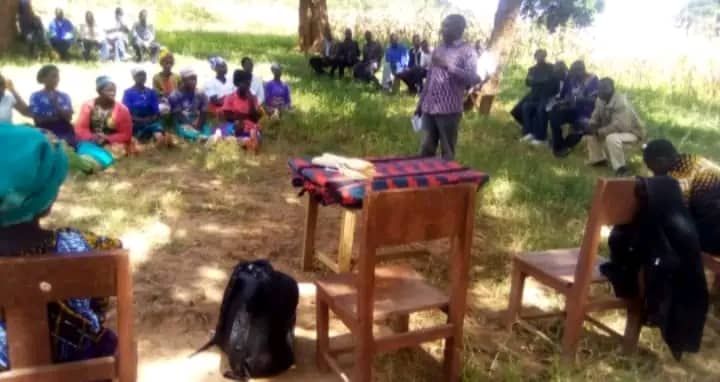By Burnett Munthali
The National Smallholder Farmers Association of Malawi (NASFAM) has tipped farmers under its Elangeni association to embrace modern farming technologies if they are to maximize their yield especially now when the world is grappling with effects of climate change.
Edward Kalukusha Mwale, Innovation and Productivity center Manager at NASFAM Mzimba south made said this yesterday at a field day for farmers under it’s Elangeni association in Mzimba where it showcased how farmers can manage their land, the importance of using certified seeds in their farming and how to avoid post harvest losses.

Mwale said the organization was compelled to engage the association to ensure that their members are harvesting enough and are taking farming as a business where they produce enough for food and for sale.
One of the farmers under Elangeni association James Gija Chipeta said the field day has helped in cascading knowledge in manure making processes which can assist farmers in maximizing their yields while at the same conserving the fertility of the land.
NASFAM has a membership of over 8000 farmers in Mzimba south grouped into 5 associations in it’s quest to ensure that farmers are adopting technologies that enhance agriculture production.
Today’s agriculture routinely uses sophisticated technologies such as robots, temperature and moisture sensors, aerial images, and GPS technology.
These advanced devices and precision agriculture and robotic systems allow businesses to be more profitable, efficient, safer, and more environmentally friendly.
Symptoms of climate change are all around us: extreme weather, diminishing sea ice, year after year of record-breaking warmth, drought, fires, and stress to ecosystems.
Many of these consequences will create hardship for humans.
By saving and replanting seeds from successful crops, farmers can produce enough food to feed their families and communities.
This can be particularly critical in the face of climate change, which can lead to crop failures and food shortages.
Farming as a Business (FAAB) is an extension approach to working with farmer groups during agricultural interventions.
It is a form of private-sector development to sustainably increase the profits of low-income, smallholder farmers.
It involves technical and institutional capacity building.
Soil conservation measures like crop rotation, reducing tillage, and cover cropping help safeguard the soil’s nutrients and organic matter, ensuring its long-term fertility and productivity and setting the stage for sustainable agriculture.
The basic mission of farmers’ associations is to represent farmers, in order to ensure their participation in the formulation and implementation of policies and agricultural development actions.
The accomplishment of this mission is based on three principal functions: consultation, information and training of farmers.










